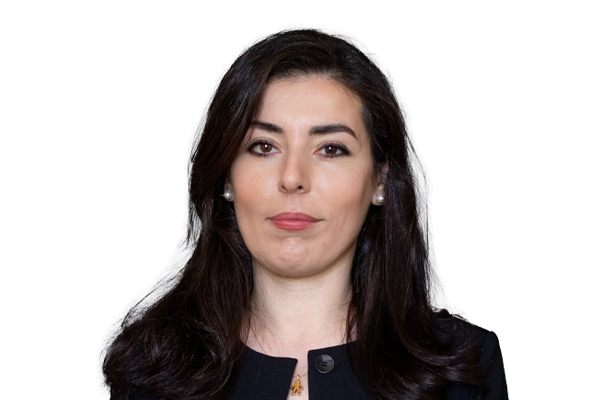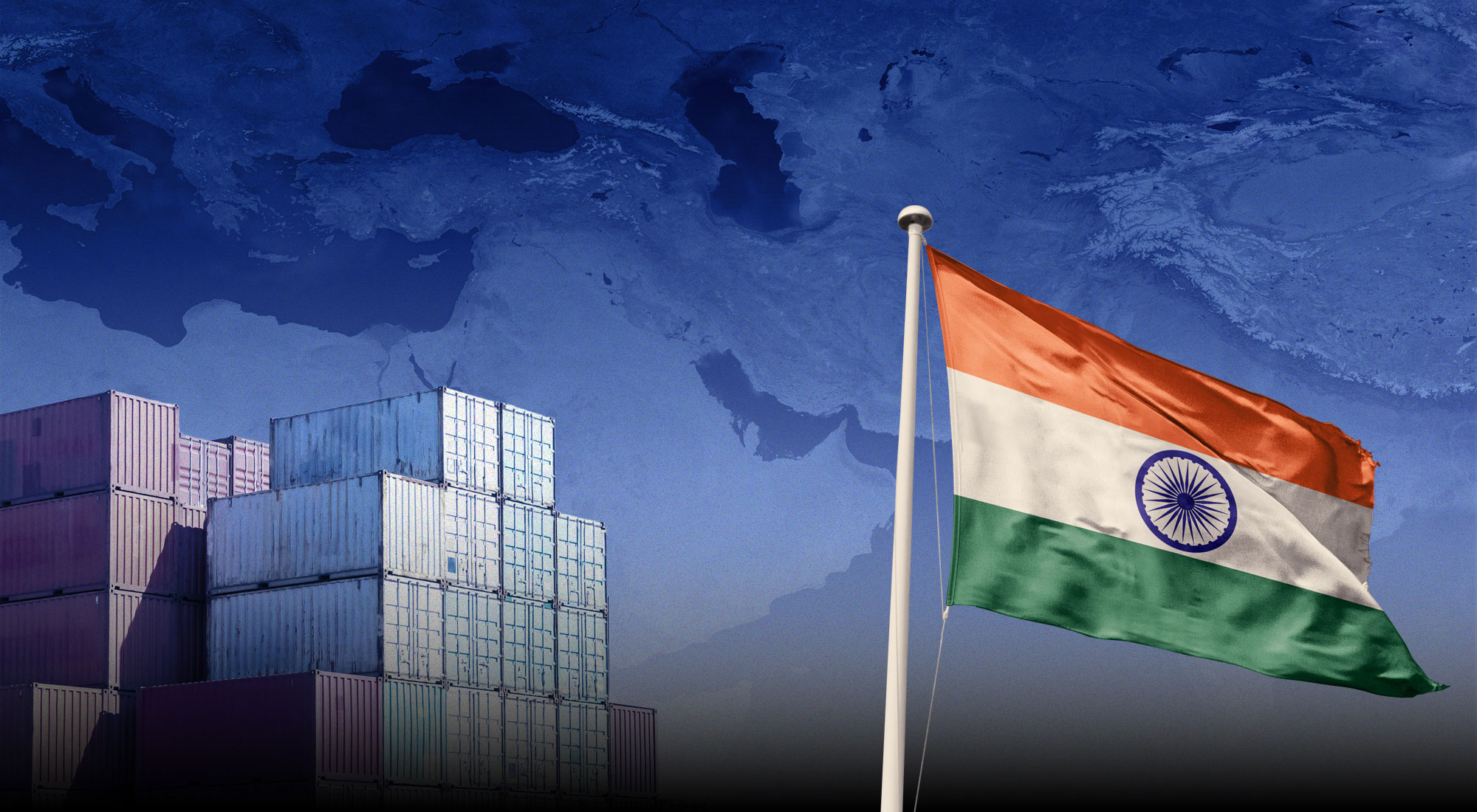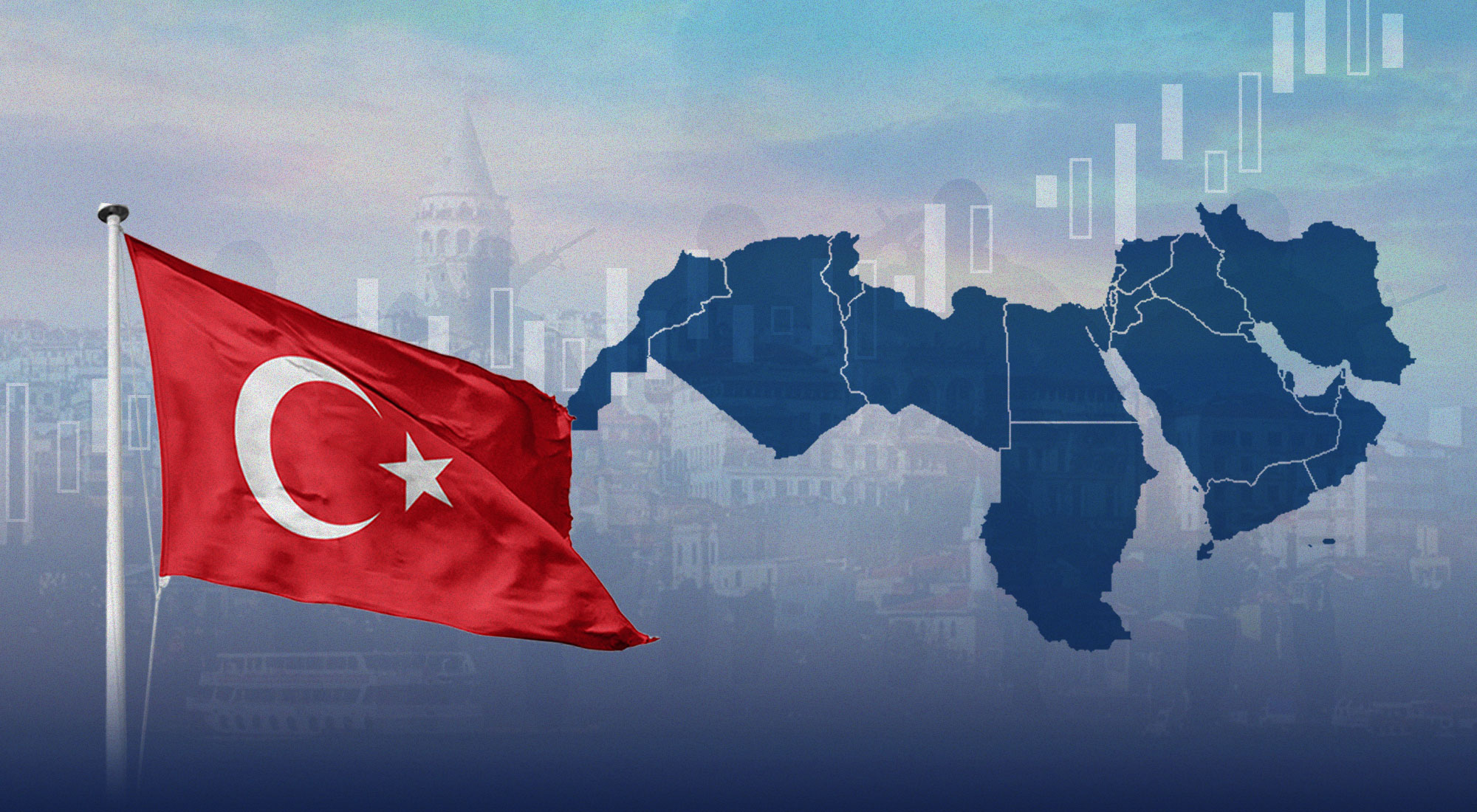The foundation of BRICS in 2006 was based on the premise of leveraging collective economic growth and political influence to advocate for a more inclusive and equitable global governance system for Brazil, China, India, Russia, and South Africa. The BRICS alliance became a symbol of emerging-market solidarity and cooperation. At the beginning of 2024, Egypt, Ethiopia, Iran, Saudi Arabia, and the UAE joined this alliance. The BRICS nations have sought to commit their cooperation through the creation of the New Development Bank (NDB) and the Contingent Reserve Arrangement (CRA), among other initiatives, aimed at supporting infrastructure development. After 18 years, we see a shift toward a multipolar world order. Involving the BRICS new members and the Russian Federation’s BRICS chairmanship is full of challenges and opportunities simultaneously. In 2024, the alliance welcomed six new members, but shortly before the first meeting in a new line-up, Argentina refused to join the alliance. However, the other members of BRICS are full of enthusiasm for working within the BRICS+ platform.
BRICS+: An impressive enlargement in 2024
An expansion of BRICS in 2024 is the second wave in the history of the group, which focuses on economic development and increasing its members’ voice in global forums. The BRICS countries occupy a unique place in the global economy. Their joint share of the global GDP is 25% and these countries perform as a large-scale global market — about 3.21 billion people (42% of the world’s population). At the same time, there is formally no title agreement; the BRICS is primarily a platform for developing economies interested in cooperation outside of politics. The unique character of the BRICS is that each of its members is simultaneously the leading economy on its continent or in a subregion within the framework of the regional integration agreement: Russia, in the Eurasian Economic Union; Brazil, in MERCOSUR; South Africa, in the Southern African Development Community (SADC); India, in the South-Asian Association for Regional Cooperation (SAARC); and China, in the Shanghai Cooperation Organization (SCO) and the possible Regional Integrated Economic Partnership (RCEP). New members were welcomed on 1 January 2024 (among them Egypt, Ethiopia, Iran, Saudi Arabia, and the UAE) and the group of the so-called “BRICS+” added more power to this alliance.
In relation to Russia, the enlargement of the BRICS presents both new opportunities and risks. Originally, Russia aimed for the BRICS platform to strengthen its economic ties and political influence in Asia by expanding cooperation, especially with China, promoting a new economic world order and developing friendshoring zones. From a political point of view, integration enhances diplomatic influence, promotes security cooperation, and supports the vision of a balanced global governance structure. Socially and culturally, it promotes mutual understanding and solidarity through people-to-people contacts and educational exchanges. However, this integration faces challenges, including political tensions, economic inequality, and coordination difficulties within the alliance. Bilateral tensions stemming from historical disputes and external geopolitical pressures, such as between China and India, for example, may hinder the development of cooperation. Economic inequality and differences in development pose additional challenges, making it difficult to develop coherent policies and an equitable distribution of resources. Moreover, various legal and regulatory frameworks impede the smooth flow of trade and investment flows, which requires complex negotiations. Russia, which has some of the world’s largest oil and natural gas reserves, has entered into strategic partnerships with Asian countries, providing them with the necessary energy resources that are crucial for their growing economies. This exchange not only ensures a stable energy supply to Asian countries but also ensures a steady demand for Russian exports, making a significant contribution to Russia’s economic stability.
In recognition of the crucial role of information and communication technologies (ICT) in economic growth, BRICS nations have embarked on joint initiatives in science, technology, and innovation. These collaborations span a wide range of fields, from biotechnology and space research to IT. Such initiatives not only enhance technological capabilities but also strengthen bonds between Russia and the other BRICS+ member states. However, disparities in technological development levels, intellectual property rights issues, and funding inequalities pose ongoing challenges. The success of these initiatives depends on creating frameworks that promote equitable participation and benefit sharing among all member countries.
A unifying principle among current and future BRICS members is their opposition against the United States and the European Union’s (EU) quest to impose restrictions on other countries’ foreign policies and economic activities, as stated by Fyodor Lykyanov.[1] This stance is pivotal for the bloc’s collective identity, advocating for a multipolar world and a new economic order. Moreover, Kirill V. Babaev, and Sergei V. Lavrov,[2] also proposed the adoption of a BRICS “common economic space” to structure the group’s practical activities and unite it with an integral plan. This concept appears to represent a flexible model of economic convergence that could bring significant benefits to participating countries by facilitating economic interaction, removing customs barriers to certain sectors, and building new transcontinental supply chains.
Main advantages in BRICS+ participation
On 30 January-1 February BRICS Sherpas/Sous-Sherpas, who are a select group of leaders representing their countries within the BRICS bloc,[3] gathered in Moscow to have their first meeting under Russia’s chairmanship with the participation of representatives of the states that became full members of the association on 1st of January 2024. The event was chaired by Russia’s Deputy Foreign Minister and BRICS Sherpa, Sergey Ryabkov, who outlined the priorities of Russia’s chairmanship. Representatives of the Russian ministries and line agencies gave detailed briefings on the key areas of cooperation. They noted the importance of implementing several Russian initiatives, in particular the launch of the Integrated Early Response System to the Risks of Mass Infectious Diseases, the establishment of the UNIDO-based Industrial Competence Centre, the BRICS Medical Association, a specialized medical journal, and stronger cooperation in transport and tourism.
Per the instructions of the BRICS leaders following the 15th BRICS Summit held in Johannesburg, on 22-24 August 2023, the modalities of the category of BRICS partner countries were discussed, as well as the ways to enhance the role of national currencies and payment instruments in cross-border transactions of the BRICS states. All the participants confirmed their focus on the continued constructive work within the three “baskets” of the BRICS strategic partnership: politics and security, economy and finance, and cultural and humanitarian ties.
This meeting held immense significance, within which five new member countries — Egypt, Iran, the UAE, Saudi Arabia, and Ethiopia — agreed to contribute their efforts toward expanding the BRICS alliance. This expansion will not only increase the political and economic influence of the group on the global stage but will also enhance the role and impact of emerging market countries in the global decision-making process.
The event was conducted at a high level, where sherpa and sous-sherpa confirmed their stances on key international issues and discussed the most crucial problems of cooperation and preparation for the upcoming summit. This allowed for the first time the integration of new members into the group’s collective work during its activities announced by Russia in 2024. The meeting fostered the development of economic relations between the BRICS countries, explored the use of national currencies and payment instruments in cross-border transactions, and raised some current issues, including healthcare and the digital economy. It is a recognized fact that this underscores the growing role and importance of the group in the economic and political processes of the world.
This research analyzes the dynamics and main spheres of interest between Russia and the new BRICS+ members. It finds that, depending on the sequence of events, Russia may face a unique set of challenges and opportunities that will significantly impact its international relations and domestic development.
Table 1. Benefits of the BRICS + membership for new participants of the alliance
| Benefit / Country | Egypt | Iran | UAE | Saudi Arabia | Ethiopia |
| Economic Cooperation | Access to BRICS’ large market, increase in exports, agricultural cooperation | Expansion of trade links bypassing sanctions, and access to technologies | Strengthening position as a global business hub, attracting investments | Access to new markets for oil and investment in infrastructure development | Acceleration of economic development through investments and technological exchange |
| Access to New Markets | Expansion of exports to BRICS countries, attraction of tourists | Sale of oil and gas to new markets, export of goods | Access to growing markets in Asia and Africa, export of high-tech products | Export of oil and chemicals, development of external trade | Export of agricultural products and raw materials to new markets |
| Investment Opportunities | Attraction of investments in the Suez Canal, energy, and tourism | Investments in the oil and gas industry and renewable energy sources | Investments in real estate, financial services, and innovations | Investments in “Green Energy” projects, infrastructure development | Attraction of investments in infrastructure, energy, and agriculture |
| Energy Cooperation | Development of renewable energy sources and energy cooperation | Cooperation in oil and gas, development of alternative energy | Leading role in developing renewable sources, partnership in energy projects | Participation in international energy initiatives, cooperation in oil and gas | Investments in hydroelectric power and other forms of renewable energy |
| Political Influence | Strengthening role on the international stage and contribution to regional stability | Strengthening of political position regionally and internationally | Enhancement of international status, active participation in global dialogue | Strengthening role in solving international issues, leadership in OPEC | Strengthening Africa’s voice in international affairs, regional integration |
Source: Created by author
Iran and Egypt as the strategical BRICS+ partners for Russia
BRICS enlargement provides significant benefits for Russia, especially in the current geopolitical context, when its trade ties with the West are strained due to sanctions. This enlargement allows Russia to forge new trade and economic partnerships with the new BRICS countries, helping to reduce barriers to mutual trade in goods and services. This development is of great significance as it is likely to determine the future direction of BRICS enlargement, and Russia’s initiatives will play a key role in advancing this agenda. One such initiative, which was mentioned by Russian Foreign Ministry officials Sergey Lavrov and Sergey Ryabkov, is the concept of “integration of integrations.” This strategy involves interaction between regional blocs of which the BRICS countries are members, such as linking with MERCOSUR through Brazil, the African Union through African members, and the Eurasian Economic Union (EAEU) through Russia.
Iran and Egypt have a strategic geographical position that strengthens Russia’s geopolitical influence in the Middle East. Iran, as a major player in the Middle East, and Egypt, with its key geopolitical position in Africa and control of the Suez Canal, can play an important role in expanding Russia’s economic and political ties with these regions. Iran and Egypt are important players in the global energy market. Russia, as one of the largest energy exporters, is interested in strengthening cooperation with these countries to increase its influence in the global energy architecture and to create de-dollarized settlement systems, which reduce dependence on Western financial systems. Moreover, Iran and Egypt share with Russia a desire to create a multipolar world and reduce the dominance of the West, particularly the U.S., in international politics. These countries’ entry into the BRICS strengthens collective efforts to form an alternative center of power, which is consistent with Russia’s long-term strategy to strengthen multipolarity in the world system.
The EAEU, which has partnership agreements with several regional blocs led by BRICS countries, can play an active role in this format. In the coming years, regional blocs, including the SCO and the EAEU, are expected to gain further impetus to join forces with the BRICS, which will give significant impetus to this integration approach.
The contemplation of Egypt’s accession to the BRICS consortium represents a significant juncture in international trade dynamics, particularly against the backdrop of the U.S.’ steadfast economic strategies and the initiation of a challenging era within the global economy. The U.S.’ endeavor to ameliorate its economic predicaments, ostensibly at the detriment of burgeoning economies including Egypt, has precipitated adverse repercussions on Egypt’s economic metrics. These include higher inflation rates and a continual increase in pricing structures. Notwithstanding Egypt’s current membership in the BRICS coalition, eventual inclusion may act as a pivotal stimulus for the enhancement of Egypt’s economic landscape.
Furthermore, the potential integration of Egypt into the BRICS framework could serve as a critical mechanism for the recalibration of various economic indicators. This recalibration is envisaged through a reduction in the dependency on the dollar and a consequent decrease in its demand. This approach is deemed indispensable for the harmonization of economic indicators, notably within the context of import activities. The benefits of BRICS membership include alleviating the fiscal strain imposed by the dollar and endorsing the adoption of alternative monetary units, such as the Chinese yuan.
Egypt’s strategic alliance with China accentuates the necessity of migrating away from an overreliance on the dollar. Considering China’s role as a primary supplier of raw materials to Egypt, a pivot toward the yuan is projected to confer substantial benefits upon Egypt’s economic framework. This includes the stabilization of prices across diverse sectors and strategic commodities. Such a transition gains added significance considering the accelerated inflationary trend in Egypt, which is exacerbated by the dollar’s predominance and its deleterious impact on developing economies.
Egypt’s membership in the New Development Bank (NDB) of the BRICS bloc could afford opportunities for preferential financing for its development projects, in addition to its participation within the bloc itself. This means Egypt would benefit from the fruits of its objectives’ success, which are nearing realization, in terms of establishing a global system that accords greater importance to emerging and developing countries.
Iran is an important political player in the Middle East region, and the inclusion of the state in BRICS will strengthen the political position of the organization in this region as well as increase the influence of BRICS itself on the international stage. Partnership with Iran will allow BRICS to participate in resolving and overcoming international conflicts, as well as create opportunities for cooperation in regional stabilization and support for global peace and security. The Iranian government’s ambitions for BRICS membership include the hope of mutual benefits. The country’s foreign ministry notes that the BRICS countries’ share of global GDP is about 30 percent, while their combined population accounts for 40 percent of the world’s total population.
In June 2023, Iranian President Ebrahim Raisi officially announced Iran’s desire to join the BRICS alliance, which at that time already included Brazil, Russia, India, China and South Africa, as well as the SCO. President Raisi’s decision was prompted by Iran’s desire to strengthen its position and ease sanctions pressure from Western countries, especially the United States,[4] diversifying international ties. In his speech, President Raisi stressed that Iran’s accession to BRICS and SCO will allow the country to play its role in fighting U.S. sanctions and expand the influence of both organizations on the world stage.[5] He expressed confidence that Iran’s membership in these alliances would be “extremely effective” and would benefit not only Iran but also other members of the said organizations.[6]
Iran became a permanent member of the SCO in July 2023. The SCO includes Russia, China, Kazakhstan, Tajikistan, Kyrgyzstan, Uzbekistan, India, and Pakistan. As for BRICS, Iran’s full membership in the organization began on 1 January 2024. At the 15th BRICS summit held on 24 August 2023, Iran was among the new BRICS member countries. Iran’s decision to join BRICS and SCO represents an important step in the framework of global politics and international cooperation. It could lead to stronger economic and political ties between Iran and other members of these organizations, as well as increase their influence on the world stage.[7]
At the same time, Russian President Vladimir Putin approved the accession of new members to the BRICS and said that the countries of the alliance will continue to work to expand the organization’s influence in the world. He also emphasized that BRICS is not a competitor and does not seek to oppose anyone. Russian Foreign Minister Sergey Lavrov noted that the BRICS countries seek to develop mutually beneficial projects that are not directed against other states.[8]
Obtaining full membership in BRICS is in line with Iran’s foreign policy vector of development, which actively opposes Western hegemony, especially that of the U.S. since the 1979 Islamic Revolution. Given that Iran, like Russia, is also under U.S. sanctions, this is of great significance for the country.[9] On 29 August 2023, Ali Akbar Vilayati, Advisor to the Supreme Leader of the Islamic Revolution on International Affairs, in an interview with Al-Mayadeen News Agency, reviewed the aspects of Iran joining the BRICS group, stressing that Iran’s policy of isolation has certainly failed and that those who are trying to isolate the country are first of all building a fence around themselves. Vilayati also noted that regional countries already have less trust in the U.S. due to various activities in their foreign policies, and on the other hand, they are conducting a kind of campaign aimed at the East and creating more unity and cooperation with the frontline countries in the region.[10]
On 30 August 2023 Jalil Rahimi-Jahanabadi, member of the Majlis National Security and Foreign Policy Committee, in an interview with IRNA, assessed Iran’s membership in BRICS as important and said, “Iran is a prominent country in the Middle East and many major countries, including BRICS members, have a positive view of the Islamic Republic’s activities, and therefore it is important for this group to have a strong partner like Iran… In this regard, the strengthening economy of the BRICS group is a valuable opportunity for developing countries like Iran.”[11] This, in turn, recognizes the importance of Iran in the context of geopolitical and economic dynamics. The BRICS’ desire to strengthen their status and influence in the international arena through partnerships with actors such as Iran is highlighted, which is seen as a valuable opportunity for developing countries to act on their own and challenge international dominance, overcoming the constraints imposed by the U.S.
On 26 September 2023, Iranian President Raisi, in a telephone conversation with Russian President Vladimir Putin, said BRICS is a good platform for increasing interaction between Iran, Russia and other member states. The latter praised the contacts between the two countries and stressed the need to speed up the implementation of agreements and joint projects, including transit, transportation, energy exchange and the completion of the North-South Transport Corridor. Raisi praised Russia’s support for Iran’s membership in the BRICS group, saying the organization is one of the most effective in shaping a multipolar world and is a suitable platform for expanding bilateral, regional, and international interactions between Iran, Russia and other member countries.[12]
In addition, Raisi said in an interview with NBC America that Iran’s membership in the BRICS and SCO brings mutual benefits to all member countries. He said that although the U.S. and some European countries have sought to isolate Iran, they have not achieved their goals in this regard. Iran’s membership in the SCO and BRICS is of interest both to these organizations and to Iran.[13]
Iran’s accession to the BRICS is of strategic importance both for the region and the global economic order in general, and for the organization itself in particular. Iran’s inclusion in this group of countries will bring additional economic power and political influence, strengthening the position of the BRICS as an important actor in the global arena. First, there is an initiative proposed by the Central Bank of Iran to create an alternative payment system to SWIFT, which was planned to be discussed within the framework of BRICS meetings in March 2024. Iran seeks to create a system for the exchange of financial messages between member countries, focused on combating money laundering and terrorist financing, similar to the international initiative FATF.[14]
Conclusion
It is crucial to emphasize the importance of Russia’s participation in the BRICS+ in terms of its socio-economic development needs. That is why the Russian Ministry of Foreign Affairs considers participation in the association’s activities as an important means of promoting modernization and innovative development of the Russian economy, strengthening its foreign policy positions. Russia’s participation in the BRICS group provides unique strategic advantages while at the same time bringing a serious challenge related to the definition of a civilizational choice. The attractiveness of BRICS lies in its potential to offer an alternative and more balanced approach to global governance, economic development, and international cooperation. As it continues to evolve, the BRICS increasingly represents not just the collective interests of its members but also a broader aspiration for a fairer and more inclusive world order, appealing to a wide range of countries seeking to navigate the complexities of modern-day geopolitics and global economics. The BRICS consortium represents an influential coalition of emerging economies. Formed with the intent to foster mutual economic growth, political collaboration, and cultural exchanges, BRICS has evolved significantly since its inception.
The alliance tries to stay out of politics and that is the reason it is an effective platform for promoting, for example, Russia’s interests even in the economic isolation of being under sanctions. However, having no legal status as an international organization, the geography of BRICS now indicates the friendshoring zones for all the members.
[1] Fyodor Lukyanov, “The BRICS Summit 2023: Seeking an Alternate World Order?,” Russia in Global Affairs, September 4, 2023, https://eng.globalaffairs.ru/articles/brics-summit-2023/ (accessed March 6, 2024).
[2] Kirill Babaev and Sergei Lavrov, “In Scope and Depth”, Russia in Global Affairs 21, no. 4 (December 2023): 5–8, https://doi.org/10.31278/1810-6374-2023-21-4-124-137
[3] “BRICS Sherpa – SABRICS Think Tank,” South African BRICS Think Tank (blog), 2023, https://sabtt.org.za/brics-think-tanks-council-bttc/sherpa-meetings/.
[4] “Iranian President: Joining BRICS and SCO Will Help in the Fight Against Sanctions,” Vedomosti.ru, August 29, 2023, https://www.vedomosti.ru/politics/news/2023/08/29/992391-prezident-irana-briks-shos. (accessed March 6, 2024).
[5] “The Iranian President Believes that the Country’s Membership in the BRICS and SCO will Help in the Fight Against Sanctions,” TASS.ru, August 23, 2023, https://tass.ru/mezhdunarodnaya-panorama/18608615. (accessed March 3, 2024).
[6] Ibid.
[7] Anastasia Shvetsova, “Putin Promised to continue working to expand the influence of BRICS in the world,” Vedomosti.ru, August 24, 2023, https://www.vedomosti.ru/politics/news/2023/08/24/991672-putin-prodolzhit-rabotu-briks. (accessed March 3, 2024).
[8] “Lavrov Expects the Strengthening of BRICS Positions in the G20,” Vedomosti.ru, August 27, 2023, https://www.vedomosti.ru/politics/news/2023/08/27/992092-lavrov-ozhidaet. (accessed March 3, 2024).
[9] Mehmet Koç, Olga Keskin “What is Iran aiming for by joining the BRICS?,” Anadolu Agency, August 29, 2023, https://www.aa.com.tr/ru/мир/мнение-к-чему-стремится-иран-вступая-в-брикс/2978444. (accessed March 4, 2024).
[10] “Vilayati: BRICS membership provides an important opportunity to develop foreign trade/Iran’s policy of isolation has failed,” Tashnimnews.com, August 28, 2023, https://www.tasnimnews.com/fa/news/1402/06/06/2948656/. (accessed March 4, 2024).
[11] “Iran’s Membership in the BRICS will Thwart US Sanctions,” IRNA.ir, August 29, 2023, https://www.irna.ir/news/85211949/. (accessed March 4, 2024).
[12] “Dr. Raisi: BRICS is a Good Ground for Expanding the Interactions Between Iran, Russia and Other Member States/ Putin: the Volume of Trade Between the two Countries Witnessed a Record Break Last Year/ Iranian and Russian Presidents Emphasize Solving South Caucasus Issues in the Region and Avoiding Foreign Interference] President.ir, September 6, 2023, https://www.president.ir/fa/146850. (accessed March 4, 2024).
[13] “Dr. Ebrahim Raisi’s Interview with the American NBC television network,” President.ir, September 26, 2023, https://www.president.ir/fa/146598. (accessed March 4, 2024).
[14] “Iran’s Proposal to Launch a SWIFT Analog has been Added to the BRICS Agenda,” IRAN.ru, March 6, 2024, https://www.iran.ru/news/economics/125077/Predlozhenie_Irana_o_zapuske_analoga_SWIFT_dobavleno_v_povestku_dnya_BRIKS?ysclid=ltfp4dg0ww197853. (accessed March 6, 2024).








